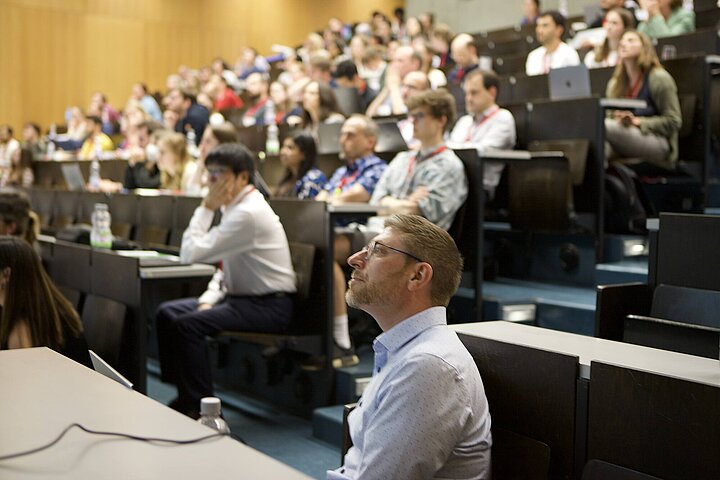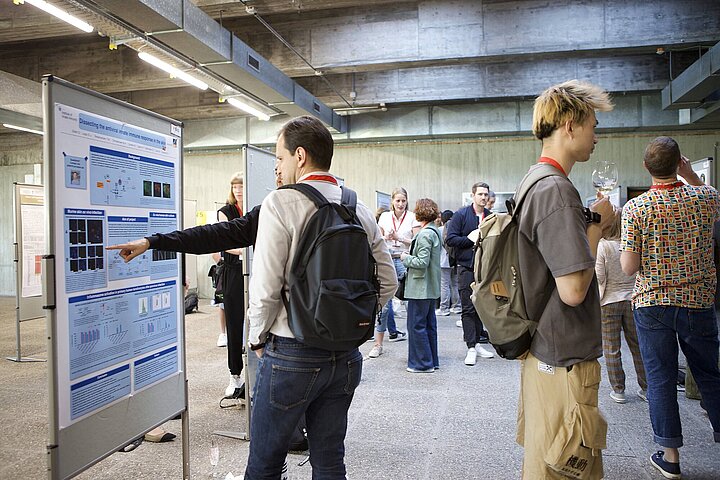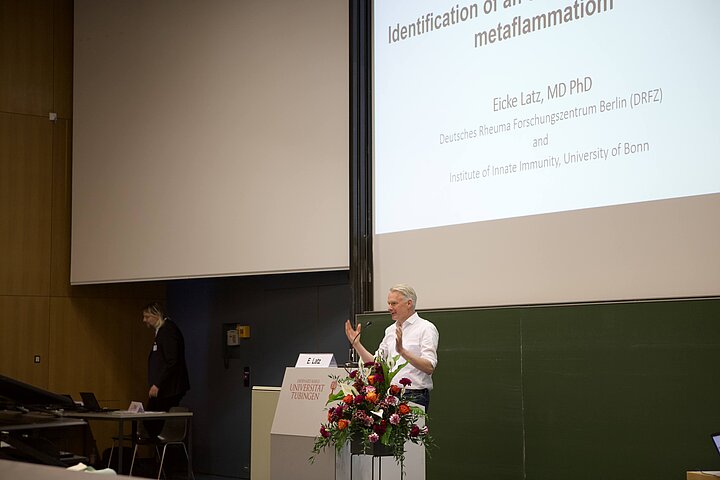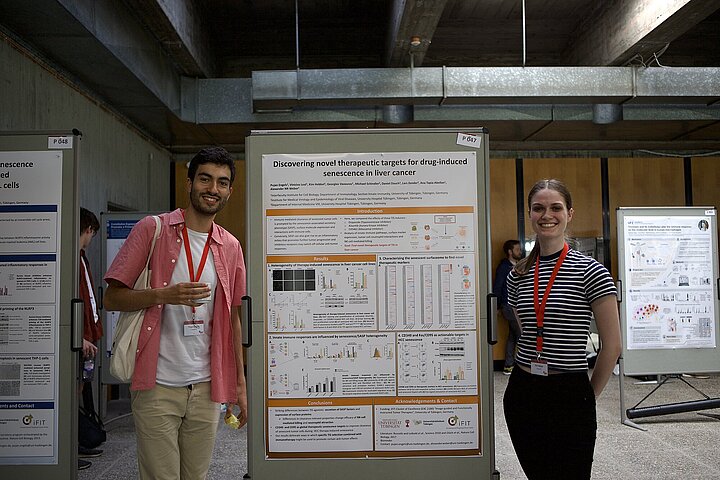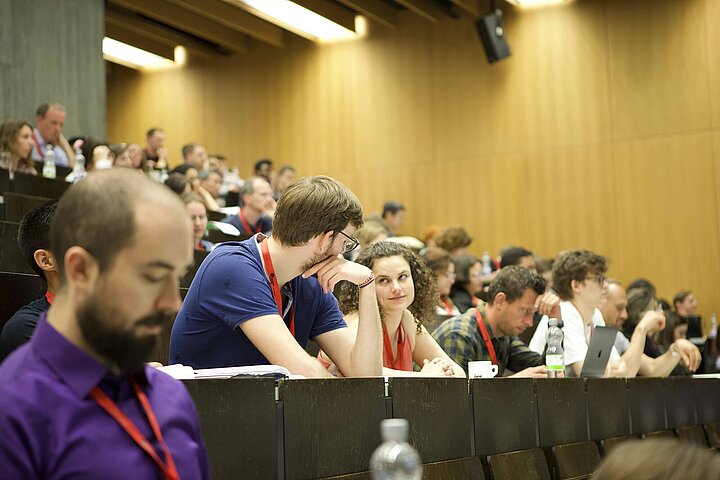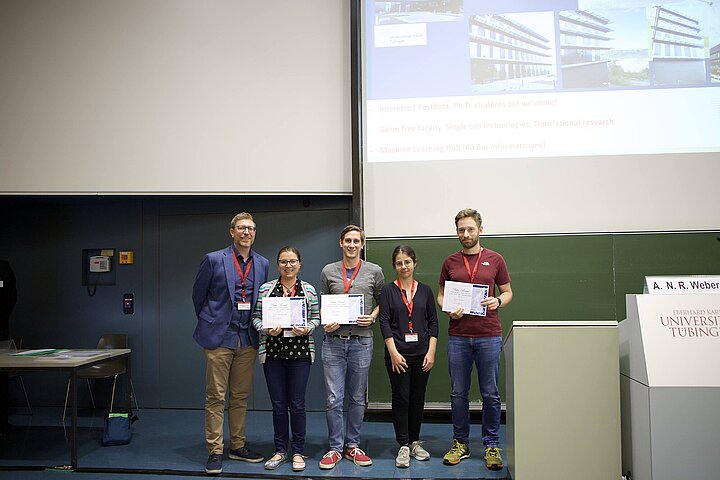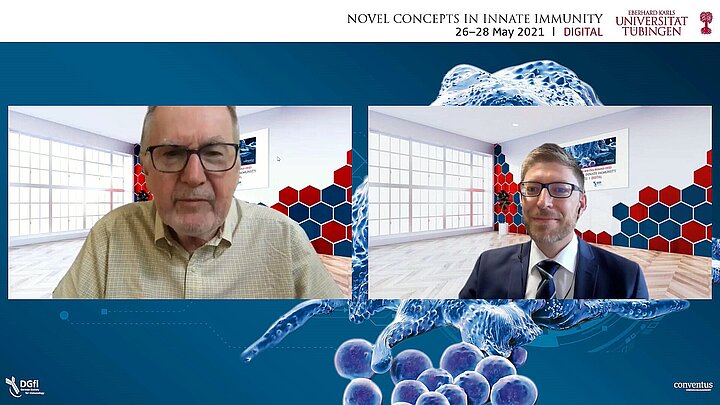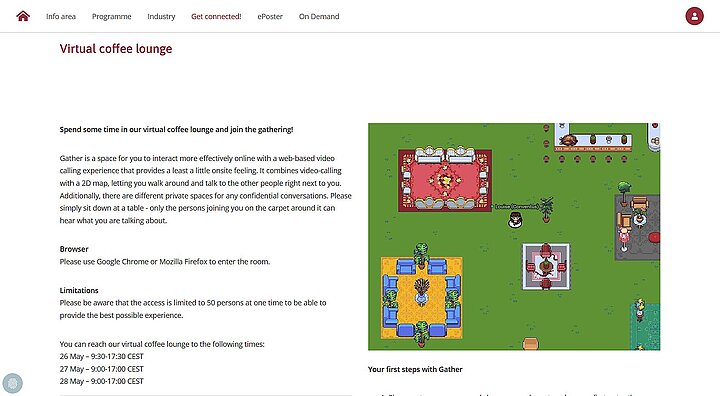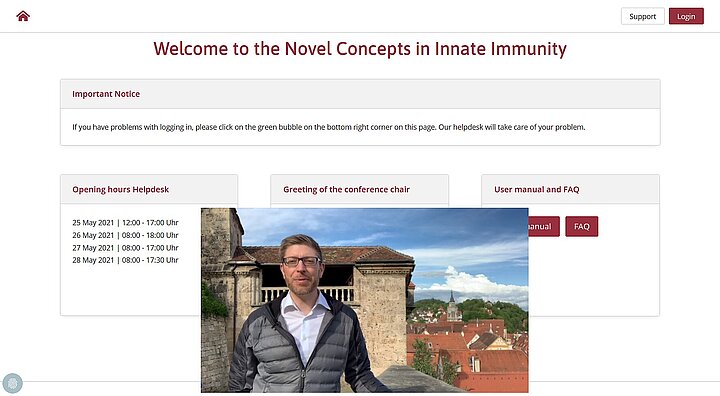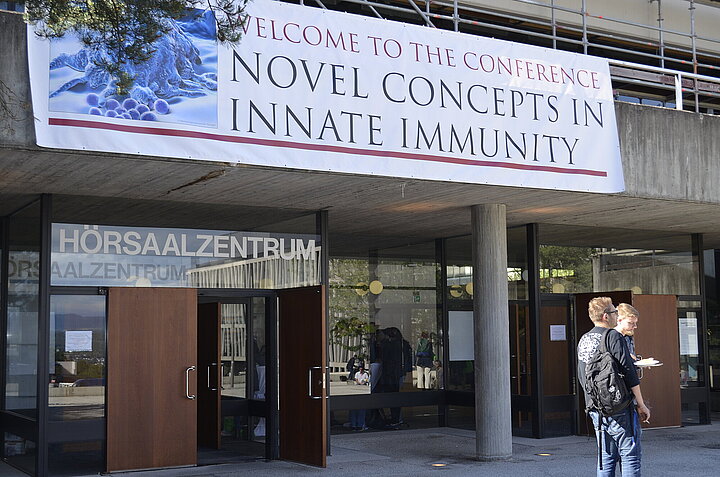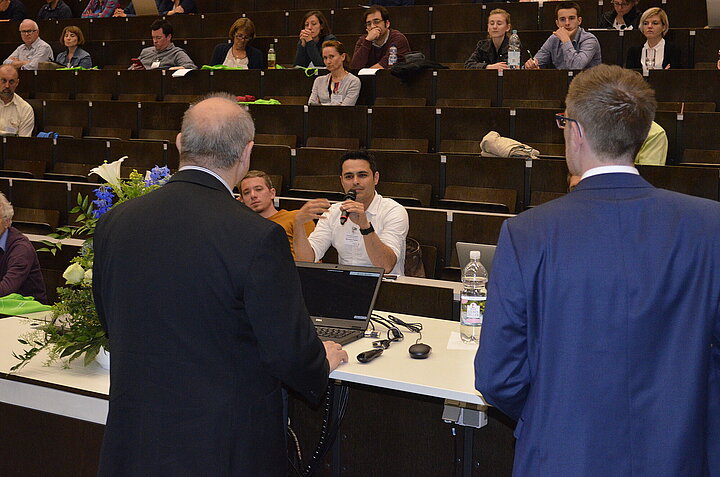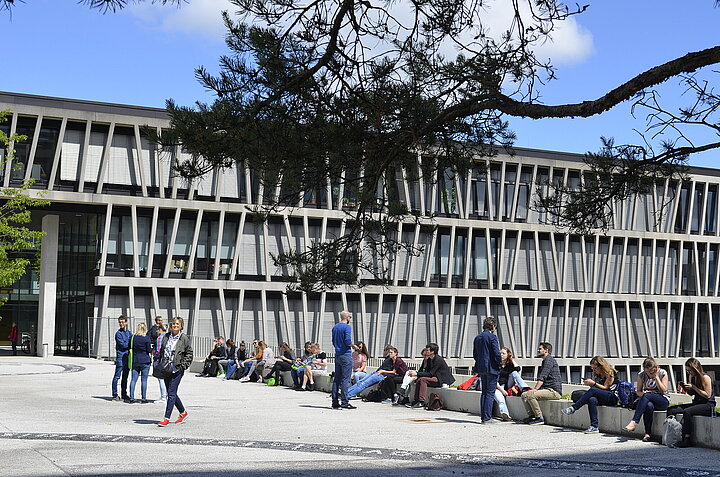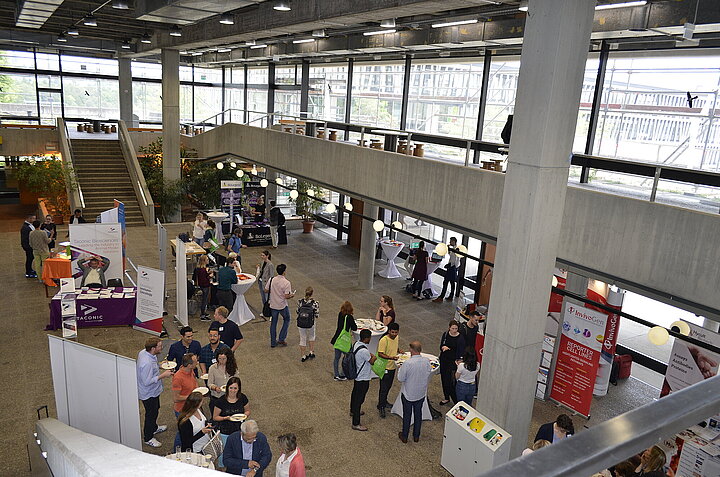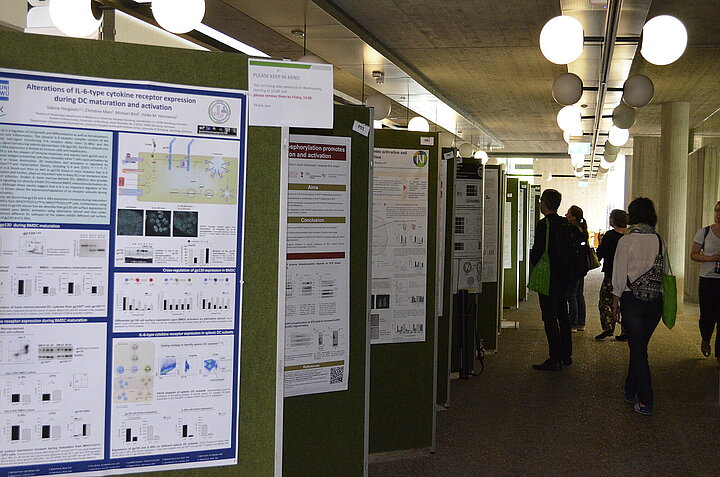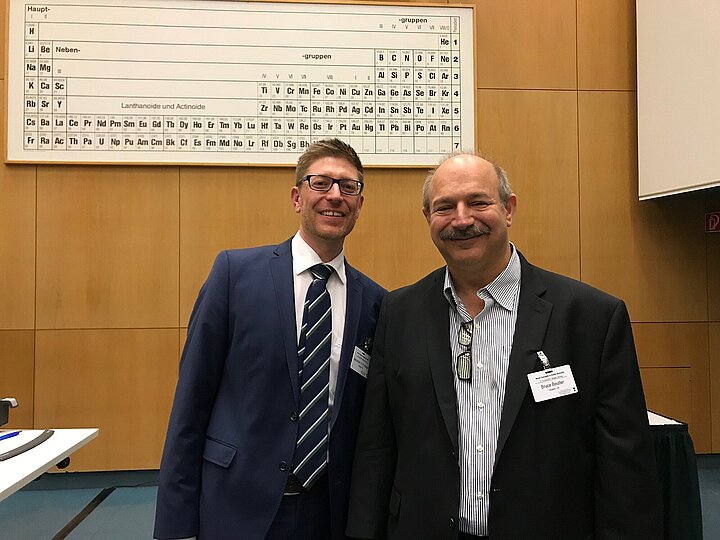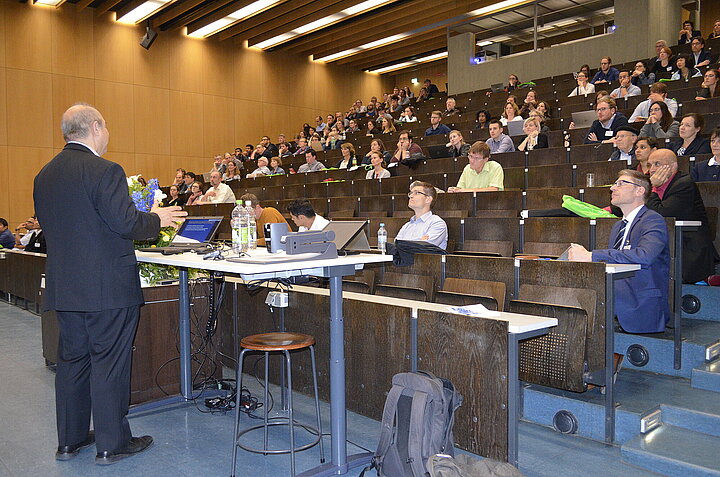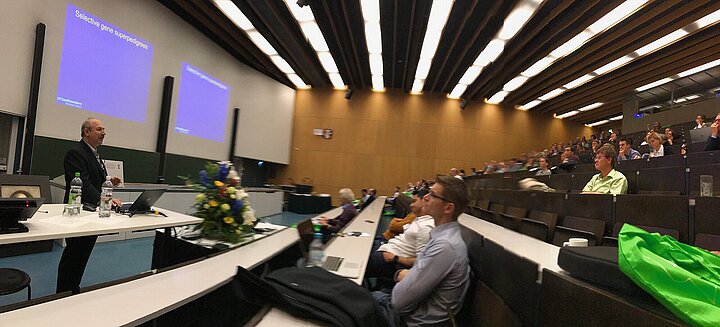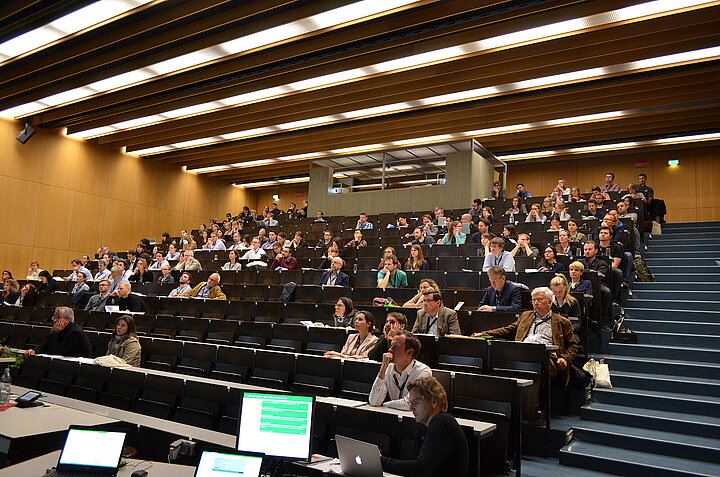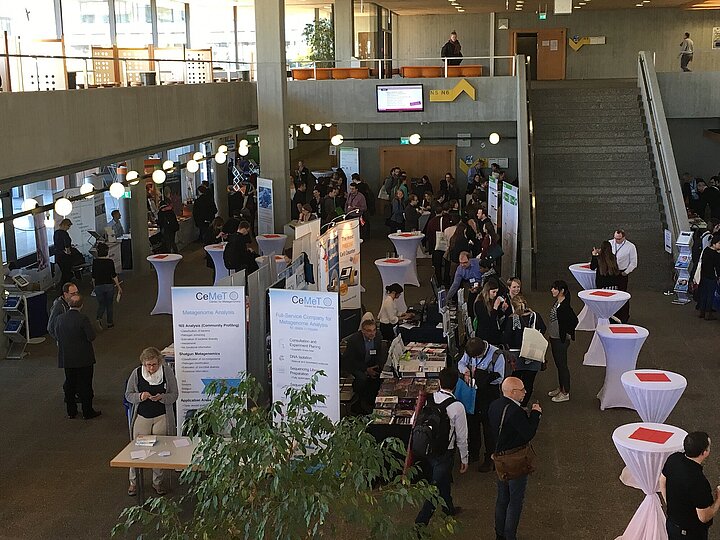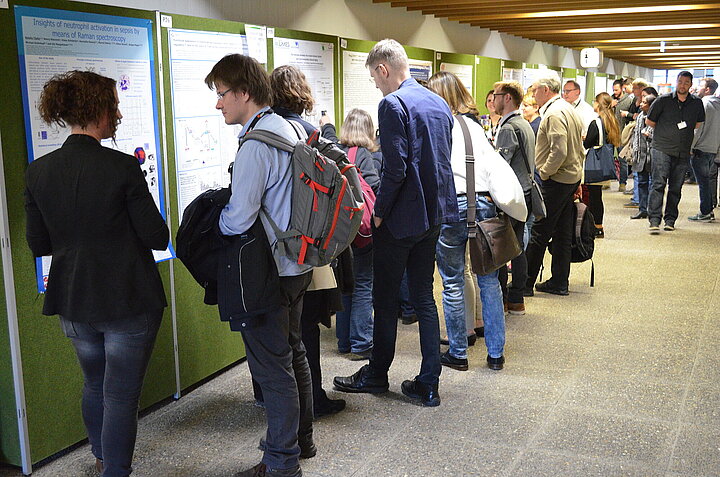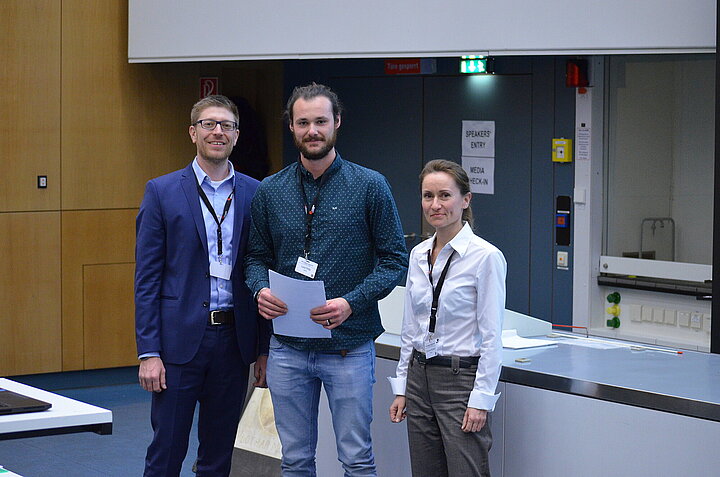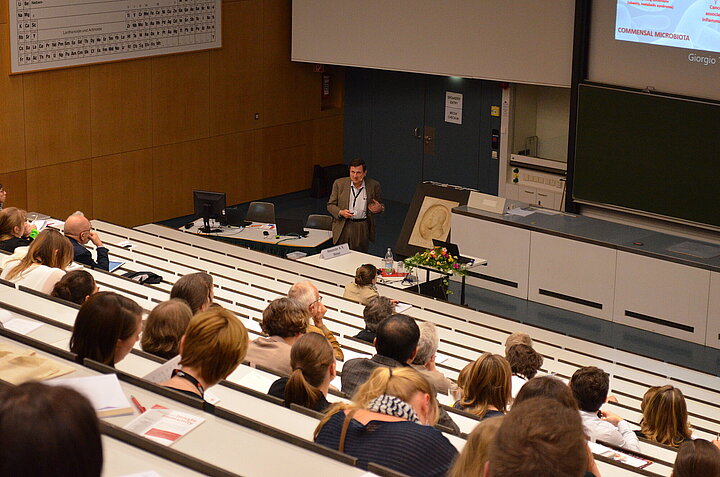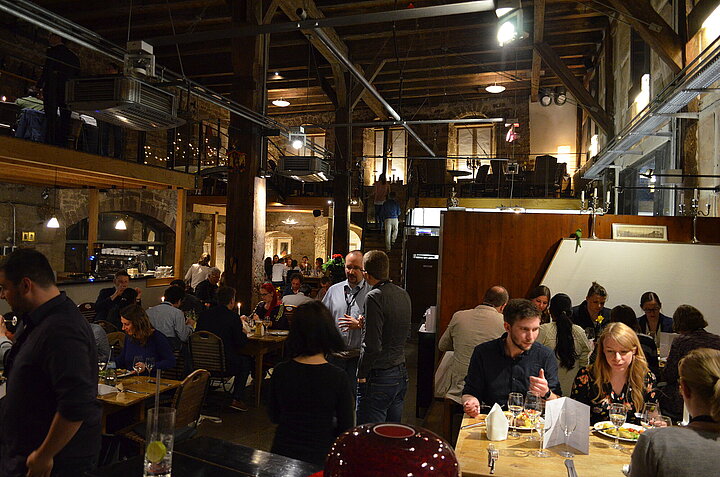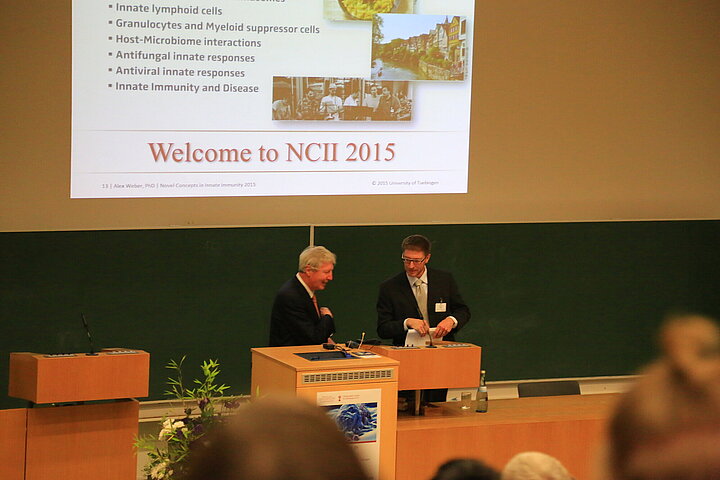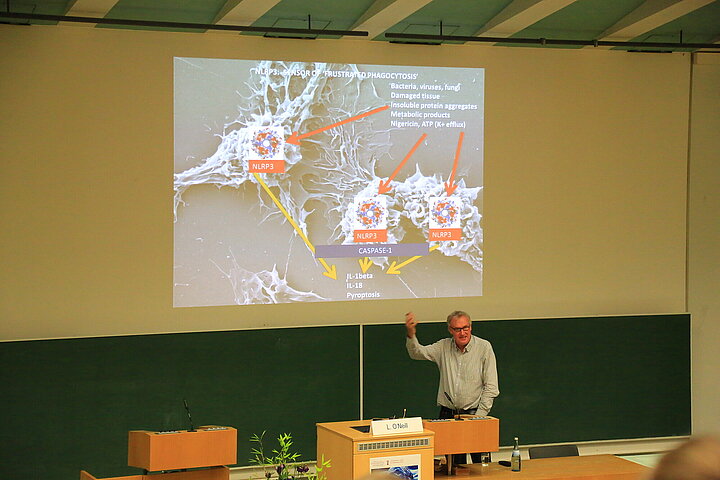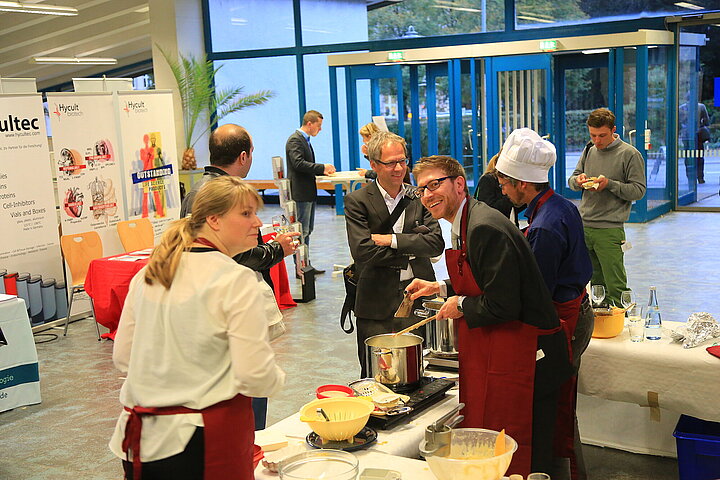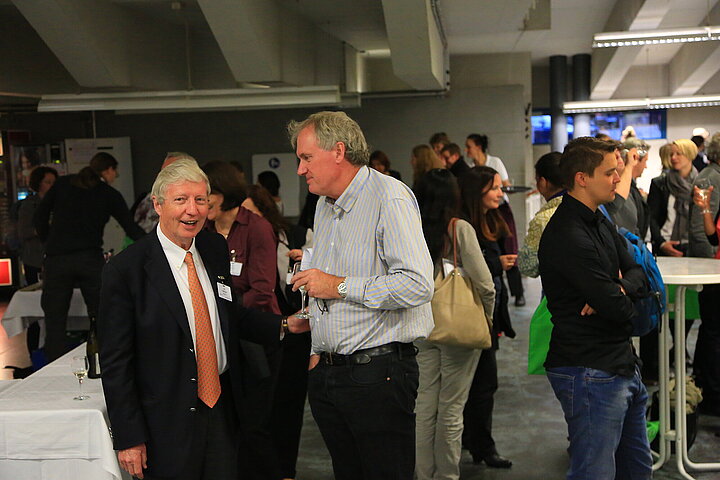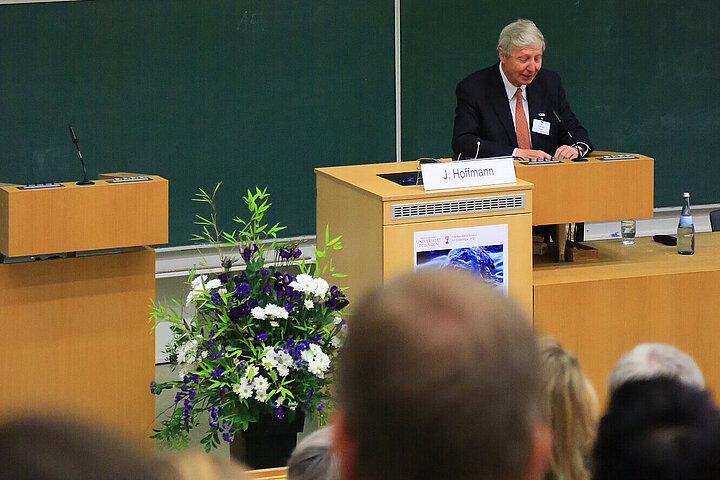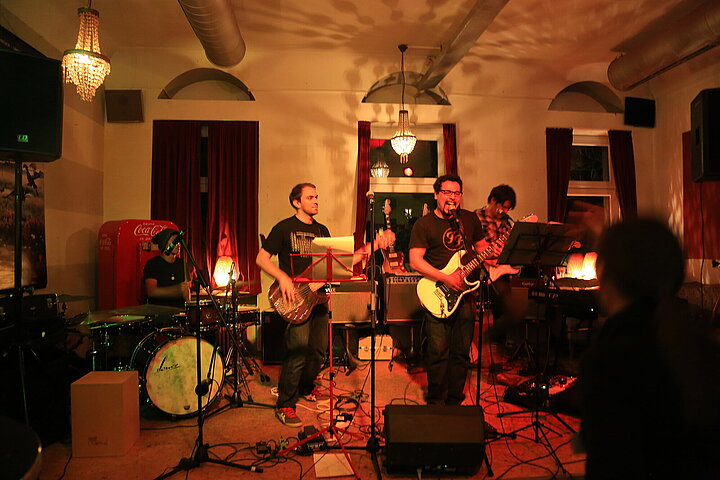10 Years of NCII - A Decade of Innovation and Exchange
Starting in 2015 as an unknown gathering, NCII has developed over the past 10 years into an important conference in the field of innate immunity.
Surrounded by the beautiful medieval city of Tübingen, over 200 participants per year have been welcomed, including international experts, pioneers and innovators.
Over the past few years, it has been a great honour for us to host renowned speakers such as Christiane Nüsslein-Volhard (Nobel Prize in Physiology or Medicine in 1995), Louis Staudt (Director of the Center for Cancer Genomics at the NIH National Cancer Institute), Bruce Beutler (Nobel Prize in Physiology or Medicine in 2011), Richard A. Flavell (Sterling Professor of Immunobiology at Yale School of Medicine) and Yasmine Belkaid (President of the Institut Pasteur) who have significantly expanded our understanding of immunity with their contributions.
For a decade, the NCII has provided an important platform for the exchange of new research in the field of innate immunity, and we are looking forward to celebrating this special anniversary with you from June 10 to 13 at the Eberhard-Karls-University Tübingen.
Here you can find a short review of our previous conferences:
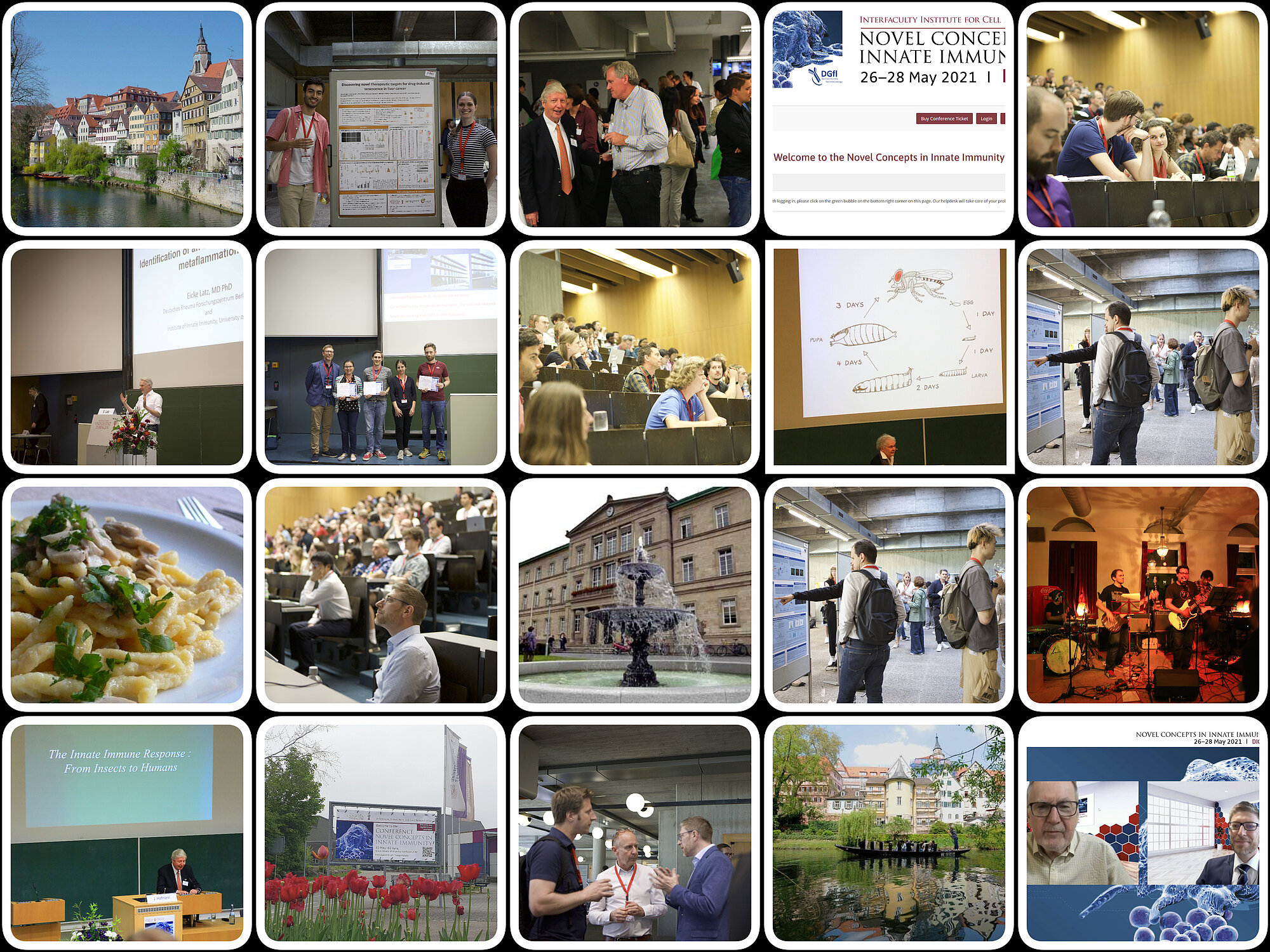
| Date | 31 May - 02 June 2023 |
| Location | Hörsaalzentrum Morgenstelle |
| Participants | 182 |
| Invited talks/speakers | How cells defend their cytosol against invasive bacteria (Felix Randow) |
| Date | 26 - 28 May 2021 |
| Location | digital |
| Participants | 202 |
| Invited talks/speakers | Trained immunity – a memory for innate host defense (Mihai G. Netea) |
| Date | 12 - 14 June 2019 |
| Location | Hörsaalzentrum Morgenstelle |
| Participants | 200 |
| Invited talks/speakers | New ways to die – caspases, kinases and everything in-between (Vishva Dixit) GBPs and caspase-4 assemble the non-canonical inflammasome at the outer membrane of cytosolic bacteria (Petr Broz) Heterogeneity of neutrophils (Andres Hidalgo Alonso) Innate immune cell dynamics in the tissue interstitium (Tim Lämmermann) Creating immune phenotypes with random germline mutagenesis and solving them in real time (Bruce Beutler) T cell-centric view of innate lymphoid cell differentiation (James di Santo) Transcriptional delineation of human ILCs at the single-cell level (Jenny Mjosberg) Trained immunity – a memory for innate host defense (Mihai G. Netea) Metabolic reprogramming regulates macrophage transcription (Eicke Latz) Skin antifungal immunity at the interface between homeostasis and disease (Salomé Leibundgut-Landmann) C-type lectins and the control of adaptive anti-fungal immunity (Gordon D. Brown) Host micro biome interactions in health and diesease (Eran Elinav) Genetic dissection of TLR4 signaling in human myeloid cells (Veit Hornung) Using the immune system’s trojan horse for vaccination (Jan Rehwinkel) Orchestration of novel human T cell properties by the inflammasome (Christina Zielinski) RIP kinase signalling in cell death and inflammation (Manolis Pasparakis) Microbiome in immunooncology (Laurence Zitvogel) Targeting STING in senescence with small-molecule antagonists (Andrea Ablasser) On the role of platelets and Kupffer cells in NASH and liver cancer formation (Mathias Heikenwälder) |
| Date | 27 - 29 March 2017 |
| Location | Tübingen |
| Participants | 200 |
| Invited talks/speakers | PRRs and the control of cytotoxic responses (Greta Guarda) The function of RIG-I’s ATPase in distinguishing self and non-self (Karl-Peter Hopfner) Cell-autonomous and bystander cell responses to inflammasome activation (Eicke Latz) The NLRP3 inflammasome in human sepsis (Pablo Pelegrín) Cancer as a disease of the symbiont/metaorganism (Giorgio Trinchieri) Antigen specificity of adaptive NK cells (Chiara Romagnani) Tissue residency of innate lymphoid cells? (Georg Gasteiger) NETosis in the oral cavity – A model of neutrophil fate at mucosal surfaces? (Ole Sørensen) Innate immune cell swarming at sites of inflammation and infection (Tim Lämmermann) Immunity and the microbiota at the host/fungi interface (Luigina Romani) C-type lectins in immunity – new insights (Gordon Brown) Spingolipids in host-bacterial interactions (Ruth Ley) The inner mucus layer and sentinel goblet cell make up the first and second line of colon defense (Gunnar C. Hansson) Remote control of antitumoral immunity by the gut microbiota (Mathias Chamaillard) Sensing and responding to viruses (Caetano Reis e Sousa) Intracellular innate immune sensing of HIV (Nicolas Manel) Antimicrobial – peptides in innate immunity of the skin (Michel Gilliet) The functional YIN and YANG of cutaneous TLR2 sensing (Tilo Biedermann) Therapy of lymphoma inspired by functional and structural genomics (Louis Staudt) ITAM Receptor Signals in Inflammation and Oncogenesis (Jürgen Ruland) |
| Date | 23 - 25 September 2015 |
| Location | Tübingen |
| Participants | 200 |
Invited talks/speakers | The Drosophila antimicrobial response – a paradigm for innate immunity (Jules Hoffmann) |

